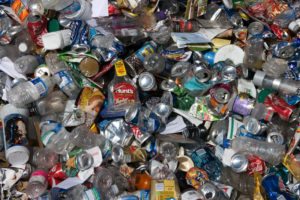 More and more people are recycling cardboard, and an industry group is reacting to Connecticut’s plan to reduce waste.
More and more people are recycling cardboard, and an industry group is reacting to Connecticut’s plan to reduce waste.

 More and more people are recycling cardboard, and an industry group is reacting to Connecticut’s plan to reduce waste.
More and more people are recycling cardboard, and an industry group is reacting to Connecticut’s plan to reduce waste.
 A paper-products maker shifts from newsprint to recycled lightweight linerboard at a Quebec mill, and a hauler serving multi-family housing is caught dumping recyclable materials into the garbage.
A paper-products maker shifts from newsprint to recycled lightweight linerboard at a Quebec mill, and a hauler serving multi-family housing is caught dumping recyclable materials into the garbage.
 A U.K. coffee chain begins collecting post-consumer coffee cups at its 2,000 locations, and an Eastern European country has a long way to go to meet the continent’s diversion goals.
A U.K. coffee chain begins collecting post-consumer coffee cups at its 2,000 locations, and an Eastern European country has a long way to go to meet the continent’s diversion goals.
 The statewide recycling and composting rate for California fell to 47 percent last year after hovering near 50 percent during the previous three years.
The statewide recycling and composting rate for California fell to 47 percent last year after hovering near 50 percent during the previous three years.
 Haulers in one Colorado city could be allowed to charge more for collection services due to falling recycling revenues, and Seattle considers changes to its plastic bag ban.
Haulers in one Colorado city could be allowed to charge more for collection services due to falling recycling revenues, and Seattle considers changes to its plastic bag ban.
 Legislation requiring cities to reduce their per-capita waste generation has gained traction in Massachusetts.
Legislation requiring cities to reduce their per-capita waste generation has gained traction in Massachusetts.
 People in Scotland can drink beer and feel good about it environmentally, and a group of European companies is exploring turning diapers into new plastics.
People in Scotland can drink beer and feel good about it environmentally, and a group of European companies is exploring turning diapers into new plastics.
 Since the European Commission unveiled its Circular Economy (CE) package last December, there has been significant discussion around the proposed legislation. And perhaps the most vexed topic to date has been how best to calculate recycling rates in the EU and whether to include reuse activities in that determination.
Since the European Commission unveiled its Circular Economy (CE) package last December, there has been significant discussion around the proposed legislation. And perhaps the most vexed topic to date has been how best to calculate recycling rates in the EU and whether to include reuse activities in that determination.
 Saying a material can’t be thrown away isn’t a guarantee it will be recycled. That’s a takeaway from the cardboard landfill ban Fort Collins, Colo. imposed in 2013.
Saying a material can’t be thrown away isn’t a guarantee it will be recycled. That’s a takeaway from the cardboard landfill ban Fort Collins, Colo. imposed in 2013.
 The state of Vermont is celebrating, after declaring its universal recycling law successful. Act 148 includes a disposal ban on certain materials and requires universal recycling access.
The state of Vermont is celebrating, after declaring its universal recycling law successful. Act 148 includes a disposal ban on certain materials and requires universal recycling access.
